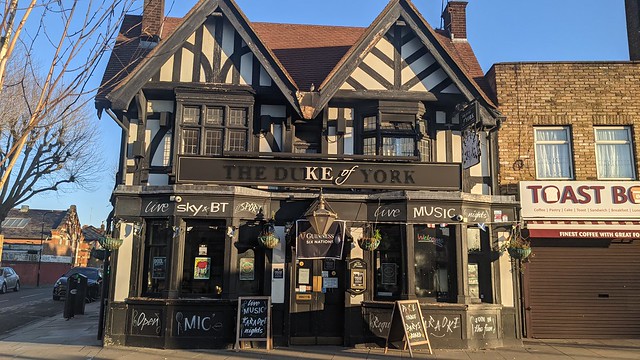skip to main |
skip to sidebar
Wonderful to see Markéta Luskacová in conversation at the National Portrait Gallery this week with my friend Paul. She's an inspirational figure for me and her work in 70s London really does feel like another country where they do things differently. It was really apt to see her with Paul who played a big part in the development of my own ways of looking at the world.

London Street Musicians, Markéta Luskacová
I'm always fascinated by how people go about pursuing this passion in relation to the real world of making a living and looking after a family. Markéta's description of taking her son in his push-chair on her trips around Brick Lane was a wonderful illustration of the compromises made.
Her story is also a timely reminder of the role of immigrants in London's growth as a world city. Undoubtedly Markéta felt a cultural affinity with the musicians she photographed but their outsider status reflected her own experience.
Buy her books!
Not my typical topic but I must mention the artist Mat Collishaw’s current installation using virtual reality (VR) with the subject of the world’s first exhibition of photography held by William Henry Fox Talbot in Birmingham in 1839.
At first sight you see a white washed room empty apart from a set of tables and cabinets also painted white. Donning a VR headset transforms the space into a detailed recreation of the room at the time of the exhibition.
This is itself a compelling idea but I admire the attention to other facets of the experience both sensory and historical that enrich it. Mice scurry across the floor, smells and heat from a fire prickle your face. Moths get too close to the candle flames. You can hold a glass photographic plate. From outside the window the sounds of Chartists demonstrating against new technology taking away people’s jobs echo through space and time. Other 21st century visitors appear in your field of view as ghostly shapes.
Thresholds by Mat Collishaw from Mat Collishaw Studio on Vimeo.
My fascination is in the way Collishaw uses
- new technology to tell a story in way that enriches it without it becoming a product demonstration
- VR in particular as today’s magical way of representing reality
- the original uncertainty around what photography was and who was it for as a counterpoint to the current ubiquity of images
- photography as a harbinger of social disruption (last but not least)
As a practitioner of photography very much rooted in the 20the century it prompts me to revisit my thoughts on modernising street photography. Can these technologies add another dimension to my ways of working? Not only in creation but in production, display and distribution?
Interesting times!








